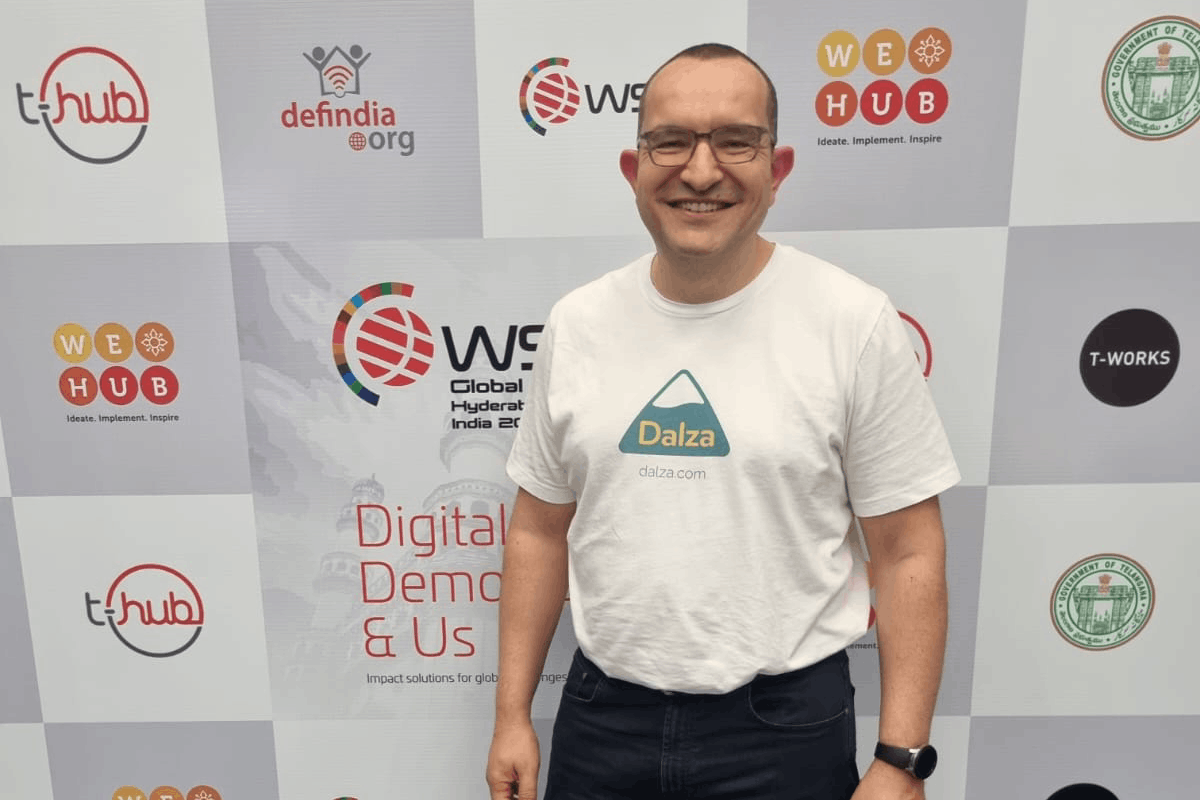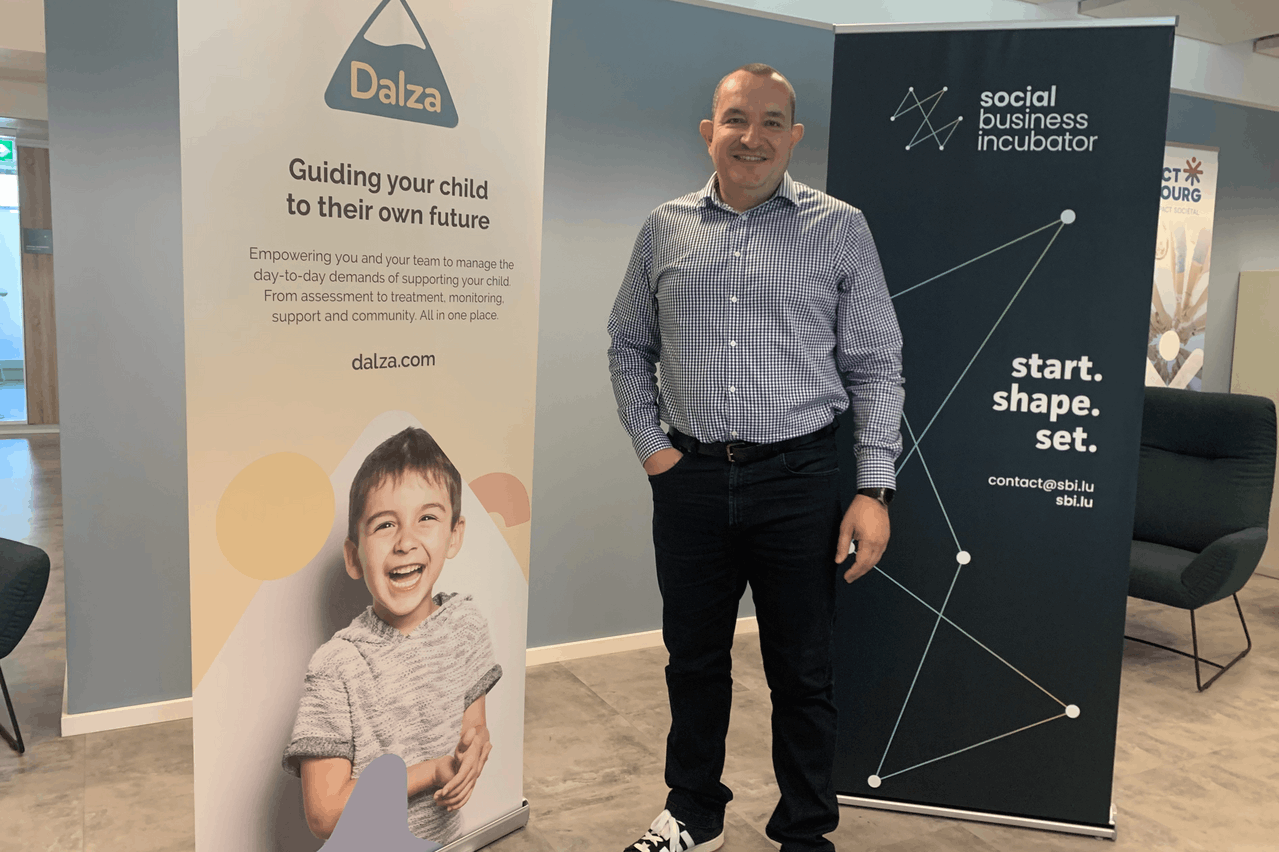Allowing parents of neurodivergent children to centralise their child’s information like their medical appointments as well as actually integrating the carers, clinicians, therapists and teachers involved: this is the aim of Dalza, a platform created by Robby Coelho and officially launched in Luxembourg earlier this year after several months’ work.
Already a finalist in the first Luxembourg Social Entrepreneur of the Year Award last December, Dalza was awarded the World Champion of Learning and Education prize at the World Summit Awards (WSA) in early April. “When I launched Dalza, I never imagined that I would find myself in India pitching my idea alongside dozens of other very talented startups,” says Coelho. Dalza was initially selected from over 900 entries as one of five winners in the learning and education category.

Robby Coelho won the World Champion of Learning and Education prize at the WSA (World Summit Awards) with his Dalza platform. Photo: Dalza
A South African originally from Portugal, Coelho arrived with his family to Luxembourg five years ago. “We lived in South Africa and Portugal before coming here and as our son, who is now twelve, is neurodivergent,” he explains. “I myself, as a youngster, needed support at school, and we saw the need for such a platform for these children with special educational needs.” Coelho is a lawyer by training, with more than 23 years’ experience as legal advisor to global suppliers, clients and institutions in new technologies and information protection.
A parent check
One in five children is neurodivergent, which can include autism, dyslexia, dyscalculia, high potential, ADHD, epilepsy, language and hearing disorders, cerebral palsy, Down’s syndrome or other chromosomal or cognitive differences. “These children often need extra support from their parents and intervention from a range of professionals,” says the founder, “which can be distressing for them and their families. Yet traditional systems often operate in isolation, resulting in inconsistent care, poor communication and missed opportunities for effective intervention and collaboration. Our aim is really to make life easier for parents, so that they don’t get lost in the time-consuming administration.”
Dalza’s platform therefore covers both home and school activities and enables records to be managed centrally. Storing all the important information in one place makes it easier to access and share and to stay in touch with carers, teachers and professionals “in order to make informed and timely decisions,” says Coelho. “And it’s the parents who control access to their children’s information, selecting which data they want to share with whom.” Coelho reports that he has been devoting 100% of his time to Dalza for several months and has invested his own savings in the startup.
The platform is also compliant with data privacy by complying with the GDPR. “We are a social impact company (SIS) accredited by the Luxembourg government, so we are committed to positive social change. We are audited as part of this, and this accreditation ensures that we operate to the highest standards of transparency, governance and social responsibility. Our seven-strong team is incubated at the Social Business Incubator.”
Dalza has received support from the non-profit organisation Zesummen fir Inklusioun (Zefi) and the Service de Consultation et d’Aide Psychomotrice (Scap), in addition to financial support from the André Losch Foundation. Dalza costs €20 a month for a parental subscription. Teachers, specialists and carers can register free of charge. The platform is available on Android and the Appstore, on smartphones, tablets and computers. It is currently available in English and French, but German will be added in the next few days with the support of the Losch Foundation.
Fundraising to come
“Children also have a part to play in the platform… they can express their emotions via emojis,” adds Coelho, who first tested the platform in his native country. “South Africa is at the forefront of monitoring neurodivergent children,” he comments. “Today, we are present in around ten countries, including Portugal, Poland, the United Kingdom and the United States, with a total of around a thousand users.”
To continue its development and recruit new staff, the company is expected to raise funds before the end of the year or in early 2026, without disclosing the expected amount for the time being. “We have recently had a number of angel investors join us for pre-seed financing, based in Luxembourg, Germany and the UK,” says Coelho, preferring to keep the amount and the players who have joined confidential.
This article in French.
